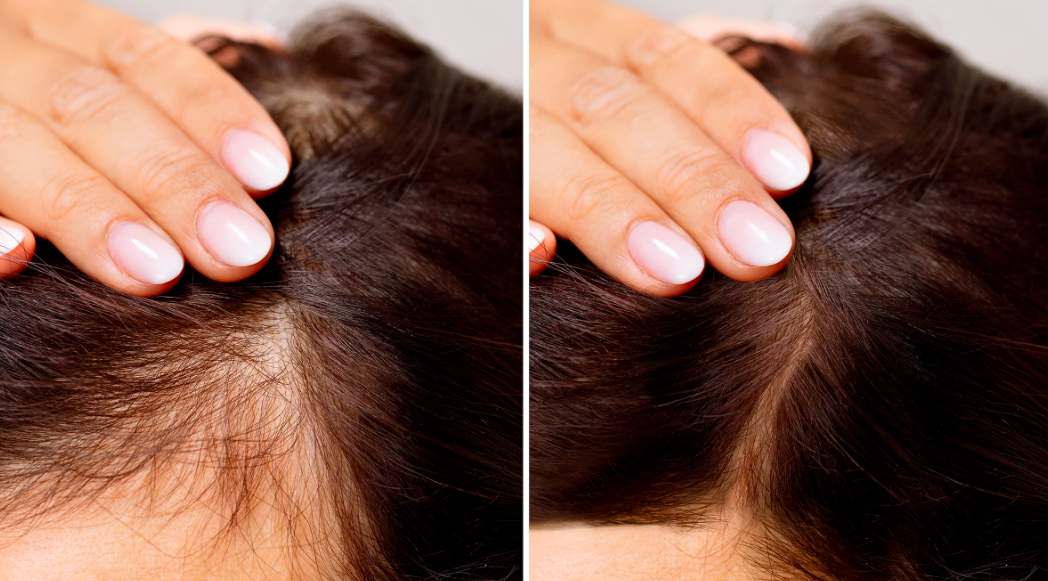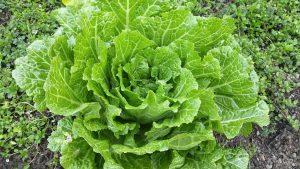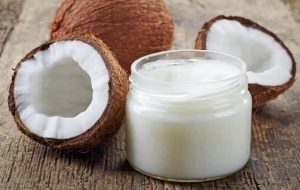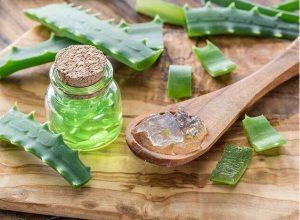
Hair fall solution.
Certainly, there are several natural remedies and lifestyle changes that may help reduce hair fall. It's important to note that individual results may vary, and it's always a good idea to consult with a healthcare professional if you have concerns about excessive hair loss. Here are some natural hair fall solutions:
Healthy Diet for hair fall/hair loss:

Maintaining a healthy diet is crucial for overall well-being, and it can positively impact the health of your hair. Here are some key nutrients and food choices that can contribute to reducing hair fall:
Protein:

- Hair is primarily made up of protein, so adequate protein intake is essential. Include sources like lean meats, poultry, fish, eggs, dairy products, legumes, and nuts in your diet.
Iron:
- Iron deficiency is a common cause of hair loss. Incorporate iron-rich foods such as lean meats, beans, lentils, spinach, and fortified cereals into your meals.
Vitamins:

What foods are good for the brain?
Vitamin A:

Promotes the production of sebum, which keeps the scalp healthy. Sources include sweet potatoes, carrots, spinach, and kale.
Vitamin E:

An antioxidant that can contribute to a healthy scalp. Please find it in nuts, seeds, spinach, and broccoli.
Vitamin C:

It aids in the absorption of iron and promotes collagen production. Citrus fruits, strawberries, bell peppers, and tomatoes are good sources.
Omega-3 Fatty Acids:

- These essential fatty acids are crucial for hair health. Include fatty fish (like salmon and mackerel), flaxseeds, chia seeds, and walnuts in your diet.
Zinc:
- Zinc plays a role in hair tissue growth and repair. Consume zinc-rich foods such as meat, shellfish, legumes, seeds, and nuts.
Biotin:
- Biotin is a B vitamin that is often associated with hair and nail health. Eggs, nuts, seeds, sweet potatoes, and avocados are good sources.
Copper:
- Copper is involved in the production of melanin, which gives color to hair. Include foods like organic meats, seeds, and whole grains.
Silica:
- Silica is important for hair strength. Foods like cucumbers, bell peppers, and whole grains contain silica.
Hydration:
- Drink an adequate amount of water daily to keep your body and hair hydrated. Dehydration can affect the health of your hair and scalp.
Green Leafy Vegetables:

- Vegetables like spinach and kale are rich in vitamins A and C, iron, and other nutrients that promote hair health.
It's important to maintain a well-rounded and varied diet to ensure you get a broad spectrum of nutrients. If you have specific concerns about your diet or suspect nutritional deficiencies, it's advisable to consult with a healthcare professional or a registered dietitian for personalized guidance.
Scalp Massage for hair fall:

Scalp massage is a simple and enjoyable technique that may help improve blood circulation to the hair follicles, promote relaxation, and potentially reduce hair fall. Here's how you can incorporate scalp massage into your routine:
Choose a Suitable Oil:

- You can use natural oils such as coconut oil, almond oil, olive oil, or jojoba oil for scalp massage. These oils can also provide additional nourishment to your hair and scalp.
Warm the Oil (Optional):
- If you're using oil, warm it slightly before applying. Warm oil can enhance the massage experience and improve its absorption into the scalp.
Divide Your Hair:
- Part your hair into sections to make it easier to apply the oil and massage your entire scalp.
Apply the Oil:
- Apply the oil evenly to your scalp. Use your fingertips to gently rub the oil into your scalp, covering the entire area.
Massage Technique:
- Use your fingertips to massage your scalp in circular motions gently. Start from the front and move towards the back. Apply gentle pressure, and avoid being too rough, as excessive pulling or tugging can cause hair breakage.
Focus on Pressure Points:
- Pay special attention to pressure points, like the base of your skull and the area behind your ears. These points are believed to stimulate blood flow to the scalp.
Massage for 5-10 Minutes:
- Aim to massage your scalp for about 5-10 minutes. You can do this before or after washing your hair, depending on your preference.
Leave the Oil (if used) for Some Time:
- If you use oil, you can leave it on your scalp for an additional 30 minutes to an hour before shampooing.
Rinse and Shampoo:
- After the massage, rinse your hair thoroughly and shampoo as usual.
Regular Maintenance:
- Incorporate scalp massage into your routine regularly, whether it's weekly or a few times a month, to experience potential benefits over time.
Scalp massage alone may not completely solve hair loss issues, especially if they are related to underlying medical conditions. If you have persistent or severe hair loss concerns, it's advisable to consult with a healthcare professional or a dermatologist for a comprehensive evaluation and personalized advice.
How do we ensure a safe and secure environment?
Aloe Vera:

Aloe vera is a popular natural remedy that is believed to have various benefits for the hair and scalp, including potentially reducing hair fall.
Use:
Here's how you can use aloe vera for hair:
Aloe Vera Gel:

- Obtain fresh aloe vera gel from the inner leaf of an aloe vera plant. You can also purchase pure aloe vera gel from reputable sources.
Scalp Application:
- Apply the aloe vera gel directly to your scalp. Section your hair if necessary to ensure even coverage.
Massage into the Scalp:
- Gently massage the aloe vera gel into your scalp using your fingertips. Massaging can help improve blood circulation to the hair follicles.
Leave it on:
- Leave the aloe vera on your scalp for about 30 minutes to an hour. If you prefer, you can leave it on overnight for a more intensive treatment.
Rinse and Shampoo:
- After the desired time, rinse your hair thoroughly with lukewarm water. Follow up with a mild shampoo to remove any residue.
Repeat Regularly:
- For best results, repeat the aloe vera treatment regularly, such as once or twice a week.
Benefits:
Aloe vera is thought to have several properties that may benefit hair health:
Soothing Effect:
Aloe vera has a cooling and soothing effect, which can help alleviate scalp irritation and inflammation.
Moisturizing Properties:
It can moisturize the hair and scalp, preventing dryness and reducing the risk of breakage.
Scalp Health:
A healthy scalp is crucial for promoting hair growth. Aloe vera may contribute to a balanced and nourished scalp environment.
While aloe vera can be a helpful addition to your hair care routine, it's essential to note that individual responses may vary. If you have specific concerns about hair loss, it's advisable to consult with a healthcare professional or a dermatologist for a comprehensive evaluation and personalized advice. Additionally, if you have any allergies or sensitivities, it's recommended to perform a patch test before applying aloe vera or any new product to your scalp.
Onion Juice for hair loss:

Onion juice is a popular home remedy that some people believe may help reduce hair fall and promote hair growth. While there is limited scientific evidence to support this, some studies suggest that onion juice may have positive effects on hair health. Here's how you can use onion juice for potential hair fall reduction:
Prepare the Onion Juice:
- Peel and chop one or two medium-sized onions.
- Use a blender or a juicer to extract the juice. You can also use a grater and then strain the grated onion to obtain the juice.
Apply the Onion Juice:
- Apply the fresh onion juice directly to your scalp. You can use a cotton ball, a brush, or your fingertips for application.
Massage into the Scalp:
- Gently massage the onion juice into your scalp for about 15 minutes. Ensure that the entire scalp is covered.
Leave it on:
- Allow the onion juice to sit on your scalp for at least 30 minutes to an hour. Some people even leave it on overnight.
Rinse and Shampoo:
- Rinse your hair thoroughly with water and follow up with a mild shampoo to eliminate the onion odor.
Repeat Regularly:
- For potential benefits, repeat the onion juice treatment 1-2 times per week.
Onion juice is believed to be beneficial for hair due to its sulfur content, which may improve blood circulation to the hair follicles, strengthen hair, and promote hair growth. However, individual responses can vary, and it's important to be aware of the pungent smell of onion juice.
If you experience scalp irritation, redness, or any adverse reactions, discontinue use immediately. It's also advisable to perform a patch test before applying onion juice to your entire scalp.
While onion juice is a commonly used home remedy, it's essential to note that more research is needed to understand its efficacy for hair loss fully. If you have concerns about hair fall, consulting with a healthcare professional or dermatologist can provide personalized advice and recommendations based on your specific situation.
Green Tea:

Green tea is rich in antioxidants and has various potential health benefits, including its use as a natural remedy for hair health. The antioxidants in green tea, particularly catechins, may help reduce hair fall and promote overall scalp health.
Use:
Here's how you can use green tea for potential hair fall reduction:
Prepare Green Tea:
- Brew a cup of green tea using a tea bag or loose tea leaves. Allow it to cool to room temperature.
Application:
- Apply the cooled green tea directly to your scalp. You can use a cotton ball or a spray bottle for even distribution.
Massage into the Scalp:
- Gently massage the green tea into your scalp for about 5 minutes, ensuring that it covers the entire scalp.
Leave it on:
- Allow the green tea to sit on your scalp for 30 minutes to an hour.
Rinse:
- Rinse your hair thoroughly with cool water. You can use a mild shampoo if desired.
Repeat Regularly:
- For potential benefits, repeat the green tea treatment 1-2 times per week.
Benefits:
Green tea is believed to have several potential benefits for hair health:
Antioxidant Properties:
The antioxidants in green tea may help protect hair follicles from damage caused by free radicals.
DHT Inhibition:
Some studies suggest that green tea catechins may inhibit the production of dihydrotestosterone (DHT), a hormone associated with hair loss.
Improved Scalp Health:
Green tea may help soothe and condition the scalp, contributing to a healthier environment for hair growth.
While green tea is generally considered safe for most people, it's advisable to perform a patch test to check for any adverse reactions before applying it to your entire scalp. If you have specific concerns about hair loss or scalp health, consulting with a healthcare professional or dermatologist can provide personalized advice based on your situation.
How to remove kidney stones naturally?
Avoid Heat and Chemicals:

Avoiding excessive heat and harsh chemicals is an important aspect of maintaining healthy hair and reducing the risk of hair fall. Here are some tips to minimize the impact of heat and chemicals on your hair:
Limit Heat Styling:
- Reduce the use of heated styling tools such as flat irons, curling irons, and blow dryers. If you must use them, use a heat protectant spray or serum to minimize damage.
Air Dry Whenever Possible:
- Allow your hair to air dry naturally instead of using heat-styling methods. If you need to use a blow dryer, use it in a low or cool setting.
Avoid Tight Hairstyles:
- Styles that pull tightly on the hair, such as tight ponytails or braids, can contribute to hair breakage. Opt for looser styles to reduce stress on your hair.
Choose Gentle Hair Accessories:
- Use hair ties, clips, and accessories that are gentle on your hair to minimize pulling and breakage.
Minimize Chemical Treatments:
- Limit the use of harsh chemical treatments such as perms, relaxers, and excessive hair coloring. Chemicals can weaken the hair shaft and contribute to hair damage and breakage.
Use Mild Shampoos and Conditioners:
- Choose sulfate-free and gentle shampoos and conditioners that suit your hair type. Harsh chemicals in some hair products can strip the hair of its natural oils, leading to dryness and damage.
Protect Your Hair from the Sun:
- UV rays from the sun can damage hair. If you'll be spending extended time outdoors, consider wearing a hat or using hair products with UV protection.
Stay Hydrated:
- Proper hydration is crucial for maintaining healthy hair. Drink plenty of water to keep your hair hydrated from the inside out.
Trim Regularly:
- Regular trims help prevent split ends and keep your hair in better condition. Aim to trim your hair every 6-8 weeks.
Read Product Labels:
- Be mindful of the ingredients in hair care products. Choose products with natural and nourishing ingredients and avoid those with harsh chemicals.
Remember that everyone's hair is unique, and what works for one person may not work for another. If you have specific concerns about hair loss or damage, consulting with a healthcare professional or a dermatologist can provide personalized advice based on your situation.
Proper Hair Care:

Maintaining proper hair care practices is essential for reducing hair fall and promoting overall hair health. Here are some tips for a comprehensive hair care routine:
Gentle Washing:
- Use a mild, sulfate-free shampoo that suits your hair type. Avoid washing your hair every day, as it can strip away natural oils. 2-3 times a week is generally sufficient for most hair types.
Condition Regularly:
- Use a good-quality conditioner to keep your hair moisturized and manageable. Apply conditioner mainly to the lengths and ends of your hair, avoiding the scalp.
Cold Water Rinse:
- Rinse your hair with cool or lukewarm water to help seal the hair cuticles and reduce frizz.
Avoid Hot Water:
- Hot water can strip the hair of natural oils, leading to dryness and potential damage. Opt for lukewarm water when washing your hair.
Pat Dry, Don't Rub:
- Gently pat your hair dry with a soft towel instead of rubbing vigorously, which can lead to breakage.
Limit Heat Styling:
- Minimize the use of heated styling tools such as flat irons and curling irons. If you use them, apply a heat protectant spray or serum beforehand.
Protect Your Hair:
- Wear a hat or use protective hairstyles to shield your hair from the sun, wind, and environmental damage.
Detangle Carefully:
- Use a wide-tooth comb or a detangling brush to remove knots and tangles gently, starting from the tips and working your way up.
Regular Trims:
- Schedule regular hair trims every 6-8 weeks to prevent split ends and maintain healthy hair.
Balanced Diet:
- Consume a well-balanced diet rich in vitamins, minerals, and protein to support overall hair health. Nutrient deficiencies can contribute to hair loss.
Stay Hydrated:
- Drink an adequate amount of water daily to keep your body and hair hydrated.
Stress Management:
- Chronic stress can contribute to hair loss. Practice stress-reducing activities such as meditation, yoga, or deep breathing exercises.
https://livewithgreen.com/natural-hair-fall-solution/
.jpg)